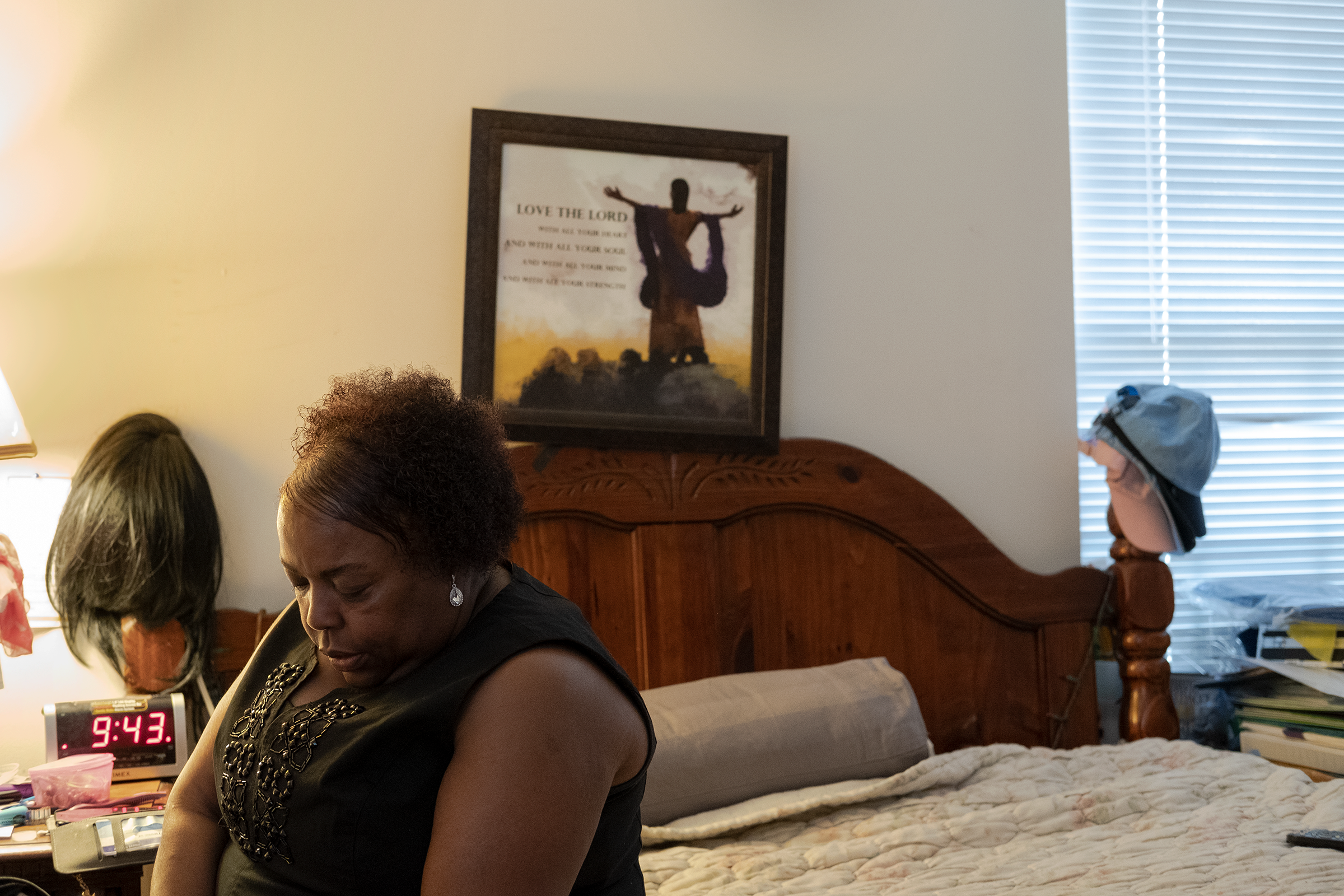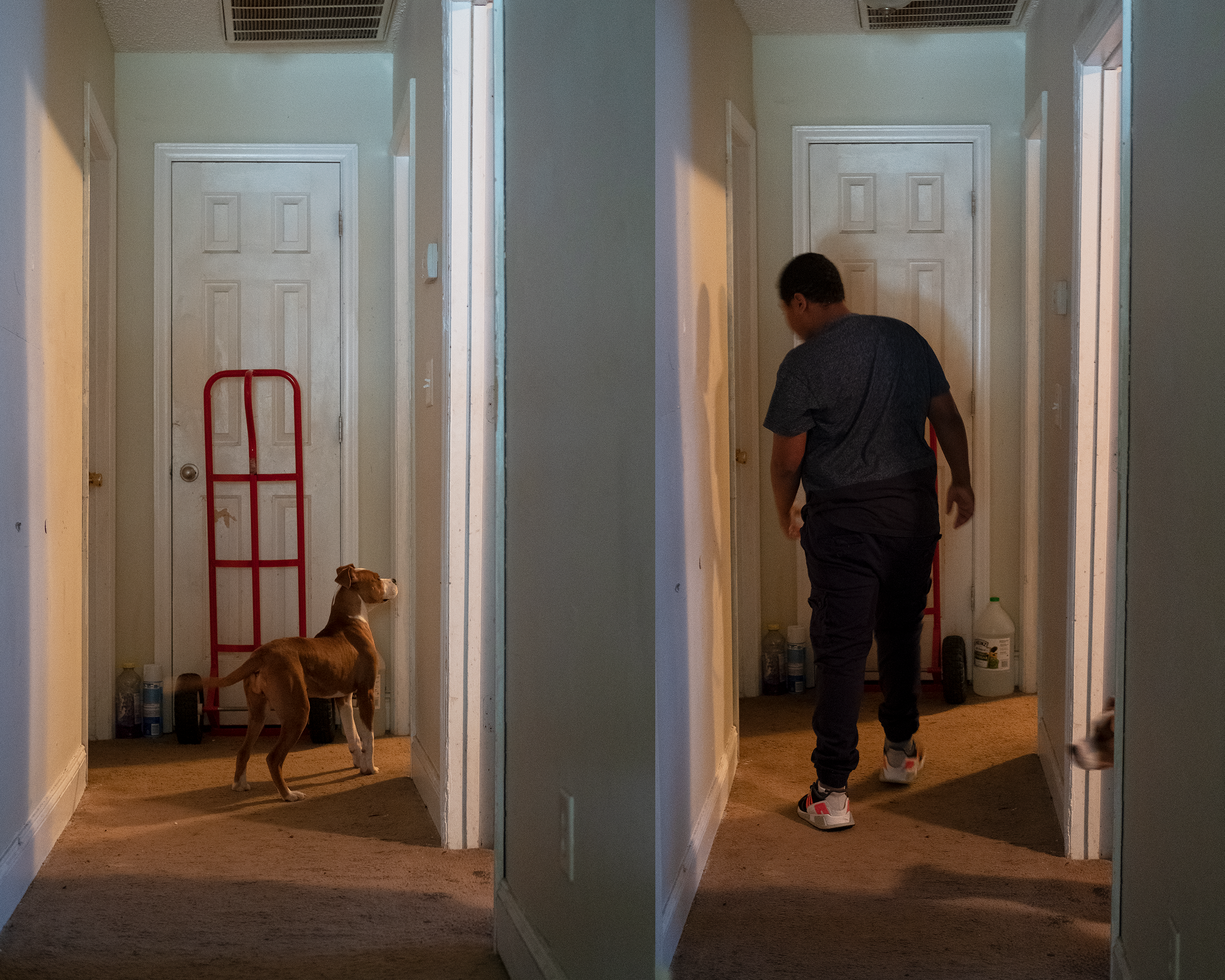
Resilience: The Story of Ms. Starks
“I always thought evictions were for people who did not take care of their business. And that was one of the things that I prided myself on, that that was the first bill I paid because I felt like, you know, I call my boys my wolves. I felt like the wolves always had to have a den. You can't holler at the moon all night, you gotta go in the den [...] And to have that security threatened, um, and not know what to do was very, very, um, disconcerting.”
Ms. Starks has lived a healthy life: no physical or mental health complications, conditions, or concerns. A yearly visit to the doctor is all she needs. She has made it her life’s mission to care for other people, and surrounds herself with families with trauma, loss, and economic struggles. Families unable to obtain food or find proper care for their children in Durham find themselves going to Ms. Starks’ organization--Network of Families--for support.
Just as important in her life are her boys. She is a mother of five (two of whom she adopted), and works diligently to provide a stable home for them. Over the eight years that she has lived in her house, she has never fallen behind on rent nor violated any lease agreements.
In the photo: Ms. Starks sits on her bed as she prepares for church. (Karla Jimenez-Magdaleno, 2019)

Heart Strains
“I could see why people choose bridges and woods over a homeless shelter…I really want you to understand this part. That if I had got evicted and I went to the shelter, [my sons] would not have been able to stay with me.”
In a survey of twenty-five cities across the United States, 32% of city Mayors cited eviction as one of the main causes of homelessness (The United States Conference of Mayors, 2017). Homelessness was Ms. Starks biggest fear. She knows that boys 12 years or older are placed on the men's side of shelters because they are perceived to be "potential predators" as she describes. She couldn’t fathom being separated from her 12-year-old son who requires stability and familiarity due to a mental health condition.
This fear caused her immense stress, and her doctor gave her a prescription to lower her blood pressure and cholesterol levels. This was her first experience with high blood pressure.
In the photo: Two photos stitched together of the hallway of Starks' house, with her dog and one of her sons walking playing with each other. (Karla Jimenez-Magdaleno, 2019)

Can it be?
“I was too ashamed to admit it was an eviction, I was just saying that after all these years of living in the house, my landlord wants me to move because he wants more rent. And they were like, ‘don’t worry. God got a plan.’"
On August 27, 2018, Ms. Starks' landlord (Mr. Hicks) gave her a 30-day notice to move out. Mr. Hicks planned to sell the house. After struggling to find a 3-bedroom home that accepted her Section 8 voucher, Ms. Starks asked for an extension in late September. He granted the extension. In October, she found a suitable apartment that would not be available until December, so Ms. Starks asked for more time. He denied it, then filed for an eviction. The reason: staying in the property past the lease agreement. “I’m going to take that HUD voucher away from you,” he threatened.
In the photo: Printed lyrics from the Christian hymn, "And Can it Be," which lays amongst food pantry supplies at Ms. Starks' office. (Karla Jimenez-Magdaleno, 2019)

Heaviness
“It would take me like two hours to get dressed. I just didn’t want to do it. And the only thing that kept me strong was my boys. I didn’t want them to know.”
Since the eviction notice, she felt a “general sickness” creep over her, causing her to avoid leaving her home. Her language—with descriptions like “putting one foot in front of the other and not really in the moment”—reflected that of someone who was experiencing depression. A devoted churchgoer, Ms. Starks started missing Sunday services. Her doctor prescribed her antidepressants during a follow-up visit to check her blood pressure.
In the photo: The Starks' fridge is kept with love-related magnets along with contacts for key resources, like the suicide hotline.
(Karla Jimenez-Magdaleno, 2019)

Orange Signs
“[My son] doesn't understand why. He's like, ‘you're paying the rent, you know, we're here. oh, why do people have to be so greedy?’
And he says, you know, ‘I don't want our house to be the house with the orange sign.’ You know, that they put in the houses when there is an eviction, it's always an orange sign. And he said, ‘I don't, I don't want to see that. I don't want to see us sleeping in the car.’ You know, and um, you know, his theory is ‘I'll do whatever I have to do. You know, I got friends that say there was a way for me to get money and stuff.’ I'm like, Oh my God, you know, all my work is…[long pause]”
While in court, the magistrate found Ms. Starks to have the right to stay at her current house. It turns out Mr. Hicks had taken her rent after he filed the eviction. She avoided the eviction and negotiated to move by the end of the year.
In the photo: Ms. Starks' sons waiting for her as they prepare to head to church. (Karla Jimenez-Magdaleno, 2019)

Keeping Faith
“…even in the work that I do that I'm helping people that don't have food and, um, don't have clothes and things like that. And, and I'm really going through something just as traumatic and I'm hoping it makes me better.”
Ms. Starks still feels the heaviness of shame around the eviction notice and depends on four different prescriptions a day. But she continues to make every effort to move past these unfortunate circumstances. In a community meeting in March, she heard that Durham Housing Authority will become one of the only housing authorities in the nation to create a homeownership program for tenants with Section 8 vouchers.She put her name on the list. “God is giving me little blessings to say, ‘come on, Sheri, don’t lose faith.’”
In the photo: Ms. Starks shows me her favorite bible, bookmarked with pamphlets for various church services. (Karla Jimenez-Magdaleno, 2019)





